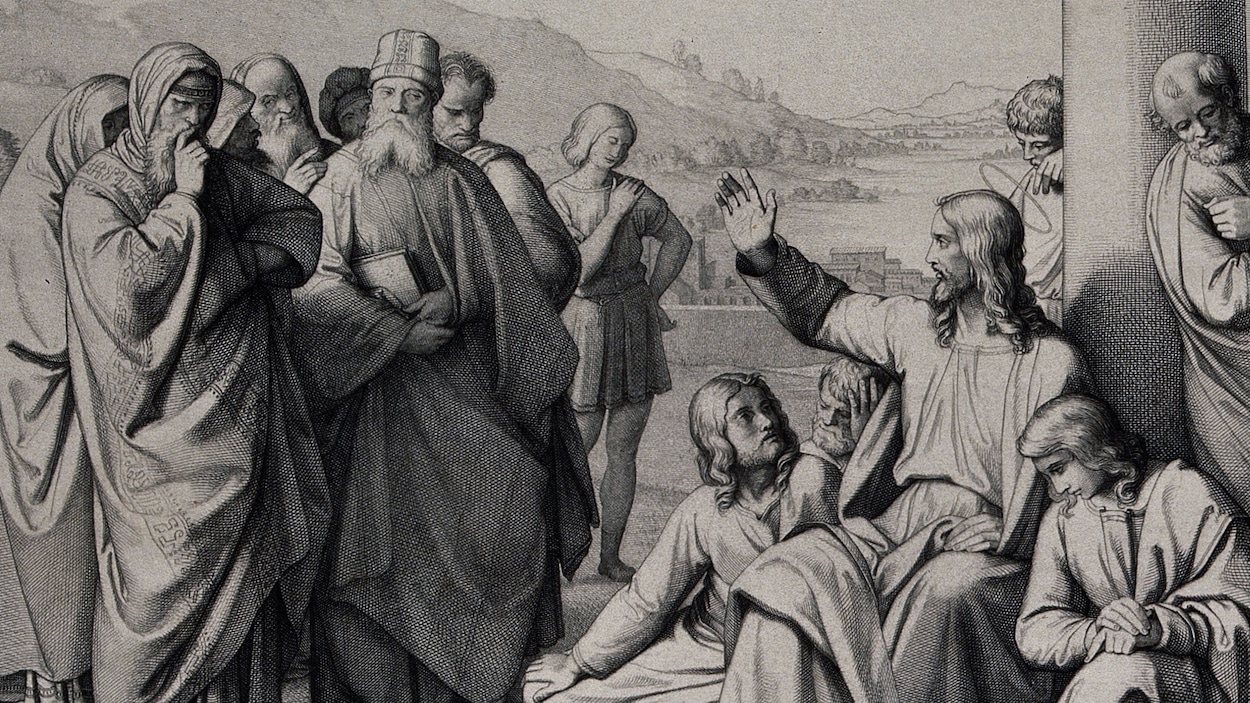To be successful in achieving a goal we must take care at the beginning to determine the correct route, which of course, is obvious. What is not so obvious is to ask the right questions, the questions that will accurately focus us upon the right path. If we do not ask the right questions, we will not obtain the correct answers.
When it comes to spirituality, we must ask some first questions. One is “Do we find God, or does God seek us out and then present Himself to us?” Another such question is “Do I construct the way to God, or do I accept the way God has given me?”
Surrounding us is a huge array of spiritualities — Tibetan prayer wheels, sacred crystals, Tarot cards, Foursquare Christian Fellowship churches, mainline Protestant churches, Confucianism, and many others, not to mention numberless spiritualities presented in a wide range of Christian churches. We find ourselves in a gigantic Wall Mart of Christianity in which we are invited to pick and choose what we want and then walk out, having paid the cashier via the collection basket; bearing our bagful of Christian groceries to sustain us until our soul’s cupboard needs replenishing again. This suits our American consumerist mentality – we “buy” what we want from our local church, take it home, and then consume what we want, when we want, as often as we want. It’s all based on what we want – not what God deserves from us, consumerist religion. The fallacy of this approach is as obvious as it is dangerous. The danger is that it can be minimalist – I buy and assimilate only the minimums necessary to allow me to consider myself a “good Christian.”
So when it comes to being a follower of Christ, when it comes to being one of His faithful disciples, am I my own guide? We know the answer, don’t we! A child cannot raise himself on his own. I cannot be a Christian on my own. We all need guidance. If we think being a Christian is a “do-it-yourself’ endeavor then we are self-deluded. Jesus does not allow us to discover for ourselves what it means to be one of His followers. He tells us who we are and what we must be about to be one of His disciples — if we want to be a follower of Him in His way, in His truth, and in His life.
Jesus came from Isaiah’s people. Through Isaiah God let everyone know what He expected of them: “This, rather, is the fasting that I wish: releasing those bound unjustly, untying the thongs of the yoke; setting free the oppressed, breaking every yoke; sharing your bread with the hungry, sheltering the oppressed and the homeless; clothing the naked when you see them, and not turning your back on your own. Then your light shall break forth like the dawn, and your wound shall quickly be healed … “(Isaiah 58:6-8)
Prayer and spirituality are not all about what we want God to do, they are about what God wants us to do. To be holy is to live united with the One who is holy, not simply to think nice thoughts about Him. Goodness and holiness are the result of love. Goodness and holiness consist in actively loving others as God loves us. One is holy because one lives with and acts with the One who is holy, Jesus Christ. It consists in actively living as He lived, in being salt and light for others. Love does not consist merely of nice sentiments. Love is realized in what we do. It’s good to ask ourselves “What would Jesus do?”
Jesus tells us: “You are the salt of the earth. You are the light of the world.” These are God’s words, defining the way we should live, calling us to act with deeds of concern for others. Salt is active and light is active — not passive. Being salt and light for others is essential to being a follower of Christ.
Every Christian is called to strive for personal sanctification, but what we need to remember is that in order to be holy we must be about the task of bringing others to be a part of the One who is holy. Jesus teaches us this. In fact He commands it. St. Therese of Lisieux, the Little Flower once wrote, “I see now that true charity consists in bearing with the faults of those about us, never being surprised at their weaknesses, but edified at the least sign of virtue. I see above all that charity must not remain hidden in the bottom of our hearts: nor do men light a lamp and put it under a bushel, but on a stand, and it gives light to all in the house.” Your love, she wrote, must be seen – not so that people may give you honor and glory but so that they may see your good works and give praise your Father in heaven.
Living for others and caring for others like Christ is the clearest expression of love. The Second Vatican Council emphasized the Christian’s duty to be apostolic. Baptism and Confirmation confer duties upon us because in Baptism and Confirmation one is anointed to be a part of the Body of Christ on earth and, like the Apostles, to bring His presence to those around us.
All of us have countless opportunities to be salt and light for others. The very nature of the Christian life consists in doing good things for others in a supernatural spirit, in the life and motivation of Jesus Christ. Which is why He told us, “Let your light so shine before men that they may see your good works and give glory to your Father who is in heaven.” But what if your salt goes flat? How can you restore it? And what if your light is hidden under a bushel? Jesus knows how often we are tempted to be timid; how often we are motivated and controlled by concerns about what others may think of us, how often we are controlled by fear. So often we keep our faith and our religious values hidden. Additionally there are many voices around us telling us to keep our faith in private and away from the public square. They do not want us to “impose our values” on them even by expressing them in public. Faith, they say, is a private matter. What they are attempting to tell us is that people of faith are not supposed to make a difference in our society — that our faith isn’t supposed to be recognized in our secularized, multicultural society. In other words, we are allowed freedom of religion in our Sunday worship services but not when it comes to living out our beliefs in public.
Can we, then, give witness to an evangelical faith in our public lives? YES, I say, we can! But it requires that we have the courage to stand out in our crowded public square. Like salt, the flavor we can give to our society must be sharp and noticeable, not so bland and flat that we are hardly noticed at all. And our humility must be such that we realize that what we believe and say and do is not for our own honor and glory, but for God’s.
Jesus does not allow us to determine for ourselves what it means to be His followers – He tells what we must be doing and us who we are. Comfortable minimalism is something He will not tolerate. Our faith is Jesus Christ is not simply so that we can save our own skins. Our faith calls us to work with Christ to reveal God’s kingdom here on earth for the salvation of our world. Anything less serves only ourselves, not others.








